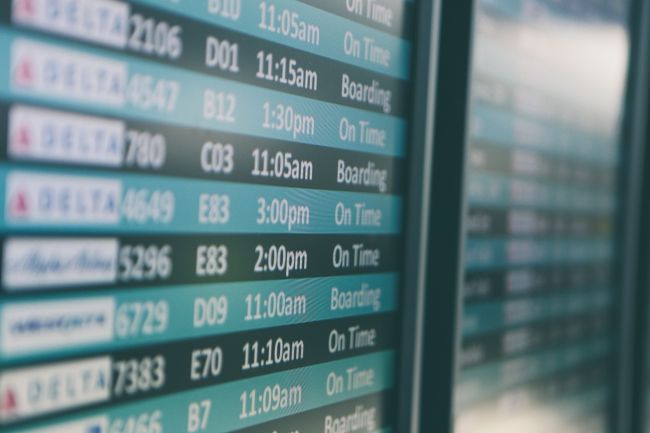
This week’s portion begins with a beautiful mitzvah bikurim. When the first fruit blossoms from the tree, one brings it to Jerusalem, to the Bais haMikdash, and presents it to the kohen. It is not a mere gift; it is an entire ritual.
“It will be when you enter the Land that Hashem, your G-d, gives you as an inheritance, and you possess it, and dwell in it. You shall take of the first of every fruit of the ground that you bring in from your Land that Hashem, your G-d, gives you, and you shall put it in a basket and go to the place that Hashem, your G-d, will choose, to make His Name rest there. You shall come to whomever will be the kohen in those days, and you shall say to him, “I declare today to Hashem …, that I have come to the Land that Hashem swore to our forefathers to give us” (Deuteronomy 28:1-4).
The patron then recites a brief history of the Jewish People, recounting their humble origins in the home of Lavan, through their ordeal in Egypt, the Exodus, finally their settling in the land of Israel. Yet the preface to the words of gratitude need clarification.
“I declare today to Hashem that I have come to the Land that Hashem swore to our forefathers.” True, today is the day you came to Jerusalem, but surely it is not the date you arrived in Israel! In fact, the mitzvah of bikurim did not begin until after the Jews conquered the land and settled it – a period of 14 years. Families who entered the land with toddlers would be about to marry them off! How can one use the expression, “I declare today, that I have arrived in the land of Israel?”
There is an apocryphal story regarding one of the Countesses of the assimilated House of Rothschild.
She lay in her bedroom off the Champs-Élysées ready to give birth. The doctor came and examined her. After a few minutes, he turned to her husband. “There is plenty of time; let’s play cards.”
Into the third round of their game, shouts came from the bedroom. “Mon Dieu! Mon Dieu!”
The doctor looked up from the deck at the nervous husband. “Don’t worry, it’s not time. Deal.”
They continued playing for another half hour when the shouts descended to the card parlor, “Oh! My Lord! Oh! My Lord!
Again the doctor shrugged. “Don’t worry. Not yet. Deal.”
They continued for another twenty minutes when, once again, shouts from the bedroom interrupted their game. “Ribbono Shel Olam! Gevalt!”
The doctor jumped from his chair. Turning to the Count, he shook his head excitedly. “Now!”
The Torah tells us that after 14 years, when one comes with the fruit of bikurim to Jerusalem, and brings his work to the kohen, and, acknowledging the roots of his heritage and the gratitude he must have for his creator, then he can preface his remarks with the words, “Today I have arrived.”
It is possible to inherit a land, construct bridges, and establish factories — but without building a spiritual nature in a country, you are not there! You can plant trees, you can harvest grain, but without recognition that the fruit and the grain of its inhabitants’ labors are truly the outcome of Divine guidance and inspiration, you may have come, but you have not arrived. And so, even after one has settled, planted, and reaped, he must come to the kohen and bring the fruit, prefaced by the words that define his acknowledgement of the true status in the Land of Israel.
Today, I come with the fruit of my labor! Today, I acknowledge the hand of Hashem in my labor. Today, I remember my humble roots, and the history I endured. Today, I cry out in the name of the Ribbono Shel Olam. Today, I have arrived! Now is the time!
Dedicated l’zecher nishmas (in loving memory of) Eliezer Yerachmiel ben HaRav Mordechai, Louis Ehrenkranz a”h, on his first Yahrzeit. By his son Gil Ehrenkranz.
In memory of our beloved father and zayde, R’ Fishel Yitzchok ben R’ Shmuel Zisblatt by his children and grandchildren the Zisblatt Family.
If you would like to be on a shiur update list which sends messagesregarding Rabbi Mordechai Kamenetzky’s various lectures in NY City and LongIsland and other locations, please send a blank email [email protected] You will receive bulletins about those classes.
If you want to be on a shiur announcement faxlist, fax request along withyour fax number (dedicated line, please) to 516-569-7954
Copyright © 2000 by Rabbi M. Kamenetzky and Project Genesis, Inc.
If you enjoy the weekly Drasha, now you can receive the best of Drasha in book form!
Purchase Parsha Parables – from the Project Genesis bookstore – Genesis Judaica – at a very special price!
The author is the Dean of theYeshiva of South Shore.
Drasha is the e-mail edition of FaxHomily, a weekly torah facsimile on the weekly portion
which is sponsored by The Henry and Myrtle Hirsch Foundation
Books by Rabbi Mordechai Kamenetzky:
 |
 |


